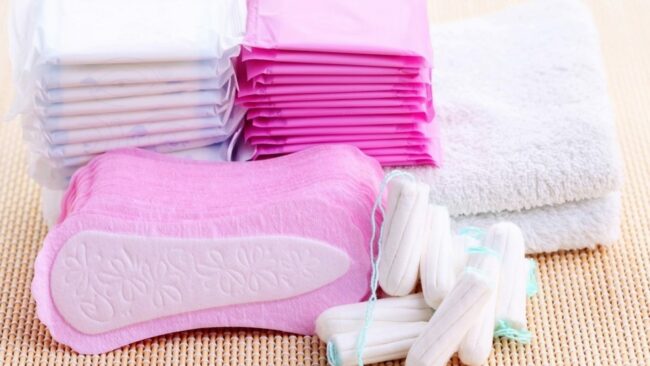In a recent interview conducted among some secondary school girls in Ibadan, TRIBUNE ONLINE gathered that some teenagers resorted to using clothes and tissues while some bought the pads on credit because of the hike in prices of sanitary pads.
One of the respondents, Adekunle Ifeoluwa, SS1 student, said she could not buy sanitary pads since the price skyrocketed from ₦600 to ₦1000.
“Before,I used to buy sanitary pads at the rate of ₦600 but now it is expensive it is almost ₦1000. Sometimes if I asked my mummy for the money for sanitary pads, she would tell me to go and collect it on credit from her Customer. I also have friends that are using alternatives and not sanitary pads.
Sonia Alexander, SS3 student corroborated with Ifeoluwa’s recommendation urging the government to make sanitary pads free for schoolgirls.
“The price of sanitary pads is high for someone like me, when I started it was 400 but now close to 1000. I used alternatives like tissues and small wrappers when I don’t have money to buy the pads.
“I think sanitary pads should be free because some of us girls don’t have people to buy them for us. Government can at least reduce the price or make it free for us the girls.”
Adefeyi Omolola also lamented the hike in the prices of sanitary pads urging federal government to make them free for schoolgirls.
“Sanitary pads are expensive. Before I normally buy it ₦1200 but now it is ₦1500. We have no other option than to buy it because we need to use it. I think sanitary pads should be free of charge because of the people who can’t afford it. Government should distribute the sanitary pads to schools and make it free of charge for teenagers,” she affirmed.
She also advocated for more awareness on menstrual health and hygiene among schoolgirls.
“Aside from the fact that sanitary pads are so expensive, they also constitute waste in the environment. Therefore, we have started another line of intervention which includes teaching secondary school students how to make reusable sanitary pads. These pads take care of affordability, it is made of environmentally friendly material and is reusable.
“I know the government is trying its best when it comes to health in Nigeria, however, there should be more awareness on menstrual health and hygiene.
“For the sanitary pads, we should start moving away from the ones that take years to degrade, we should start moving towards the recyclable ones. These recyclable sanitary pads can be taught in secondary schools.
“The government can pass a friendly policy that would ensure how to make reusable sanitary pads, and how to use it for secondary school students. At least that would help people who cannot readily afford it.
“My advice for the society at large is to embrace the new transition. The companies that make sanitary pads should think of how to make sanitary pads environment friendly and using materials that are affordable, so that the masses can easily afford it. Also, we should embrace the use of reusable sanitary pads,” she noted.
